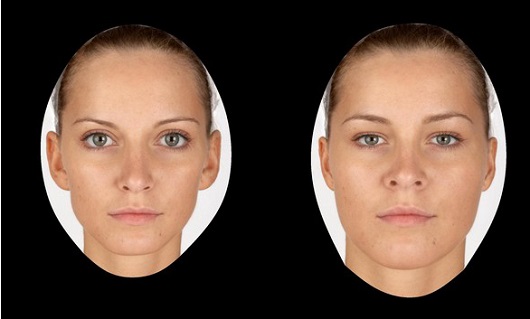When the going gets tough…

When their environments are tough, men prefer heavier women, according to new research by the University of St Andrews.
The study, published this week by journal Ethology, is the first to find that our face preferences change when our environment changes.
The study compared men whose environment was not changing with men being put through ten days of intensive training at an army camp (cadets in the University Officer Training Corps).
Face preferences were found to change depending on the environment being experienced, with heavier-looking women being preferred by the men suddenly being exposed to the harsh army training camp environment.
The research was carried out by psychologists Dr Carlota Batres and Professor David Perrett at the University’s Perception Lab.
Dr Batres, who led the research, commented: “Our findings provide new evidence for the malleability of preferences depending on the environment. We found that the weight preferences in prospective female partners changed in response to the harsher environment and then remained at the new level while the environment remained harsh.”
During each of the tests all participants were asked to choose the faces they considered the most attractive. Faces were computer-generated and varied in apparent weight. Each subject was asked to rate faces three separate times with time intervals of approximately three days between each testing session.
For the control subjects – whose lives and environment did not change compared to baseline – there were no changes at all in their preferences across the testing sessions.
For the army cadets, however, preference increased towards heavier looking women between the first day of the camp before the training commenced (Session 1) and day three of training (Session 2). Preference then plateaued for the remainder of the training camp (Session 3).
During training, cadets reported higher levels of stress, physical strain, mental pressure, pain and being more out of their comfort zone after the first testing session.
Dr Batres continued: “Such changes in preferences may be beneficial because they allow for increased opportunities to form partnerships with those who are better equipped to survive illness or uncertain food availability.”
Professor David Perrett, who runs the Perception Lab at the University’s School of Psychology and Neuroscience, added: “Previous studies have found that populations living in places where life is tough prefer heavier women, but no-one has shown that as the environment changes, people’s preferences change too. So it appears that when the going gets tough, tougher-looking women become more attractive.”
The paper ‘How the harsh environment of an army training camp changes human (Homo sapiens) facial preferences’ is published online by the journal Ethology.
Note to news editors
Carlota Batres is available for interviews: UK 08447 745 595; US (001) 617 615 2270; [email protected]
Image shows the female computer-generated face variation: Cadets shifted their preference to the more masculine face on the right after experiencing a harsh environment
Issued by the Press Office, University of St Andrews. Contact 01334 462530 or email [email protected].
Category Research